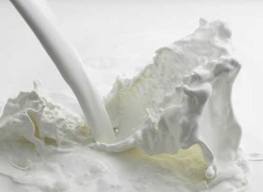Breastfeeding your baby to the breast is the best choice that the mother can do. thanks to a campaign by the WHO to increase breast-feeding, the percentage of breastfeeding mothers exclusively breastfeeding at hospital discharge increased from 70% in 1995 to 76, 8% in 2000. Breast milk is easily digested and well tolerated in the intestine, it is ideal for the growth of the infant and is the main food of the child up to six months of life: it is able to provide on its own nutrients and calories necessary for optimal growth.
to a campaign by the WHO to increase breast-feeding, the percentage of breastfeeding mothers exclusively breastfeeding at hospital discharge increased from 70% in 1995 to 76, 8% in 2000. Breast milk is easily digested and well tolerated in the intestine, it is ideal for the growth of the infant and is the main food of the child up to six months of life: it is able to provide on its own nutrients and calories necessary for optimal growth.
However, there are some contraindications to breastfeeding: the presence of infectious diseases in the mother, such as tuberculosis, whooping cough, hepatitis, alcoholism, drug addiction, autoimmune rheumatic diseases. Even the constant use of certain drugs is a contraindication to breastfeeding, in fact, many drugs are secreted in milk, although the amount excreted rarely exceeds 1-2% of the doses administered to the mother.
Breastfeeding with formula milk
Milks or artificial milk formulas are today constituted so as to be as similar as possible to mother’s milk, and from the nutritional point of view, may be considered complete. To give your baby formula milk is still a good choice, although specialists confirm that breast milk is in any case, whenever possible, the best solution for the child.
Artificial feeding can begin after the first few weeks of breastfeeding or right from the start. A mother in doubt about this choice should try to keep separate the medical reasons than those belonging to the psychological and emotional, and must remember that the most important thing for her child is that he feels loved and is fed with the method believes she likes most.
The infant formula are divided into two groups:
- milk liquids have remarkable ease of use, is ensure the sterility of the product is free of preservatives, help you avoid mistakes in the preparation
- milk powder: have a period longer retention of liquid milks, is prepared at the time of use bearing in mind that the water will have to be put into the bottle before the powder and that the volume of reconstituted milk will be slightly higher than that of the single water should be stored in cool, dry place. If the content seems altered to smell rancid, dark spots, blocks moisture, you may want to delete it.
Depending on the age of the child to which they are divided into:
- milk for premature or low birth weight infants: formulated to allow rapid catch-up growth
- suitable for infants or departure: Suitable for 4-6 months
- milks continuation: Suitable for children aged 6-12 months
- milk growth: for children between 12-36 months
The milks adapted, in addition to being formulated to provide calories, proteins, lipids,

carbohydrates, vitamins and trace elements, can be prepared to meet particular situations: are the special milks, dietetic or therapeutic that can be used as a preventive or therapeutic purposes, to intervene in improving digestive function and change in the intestinal ecosystem.
Originally posted 2012-11-25 16:31:24.

